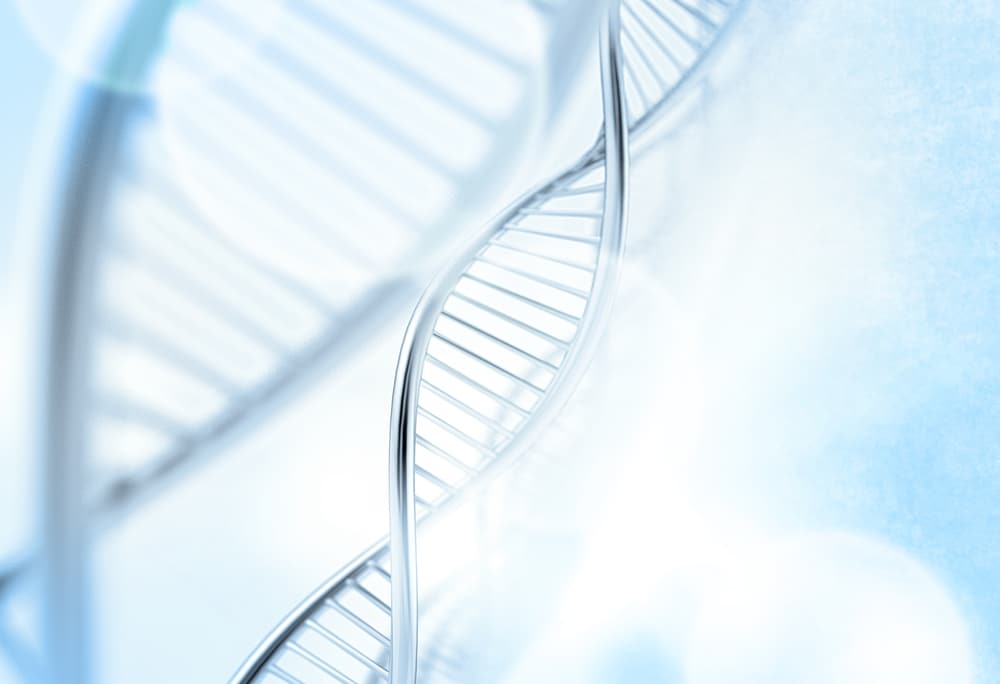Named for the disease it causes when mutated (Niemann-Pick Disease Type C), the NPC1 gene is located on human chromosome 18. Its normal function is to provide instructions for making a protein located in the cell’s membrane of endosomes and lysosomes. The resulting protein, also called NPC1, regulates the movement of cholesterol and fatty cells in these vesicles. Although it is most known for its connection with Niemann-Pick Disease Type C, the NPC1 gene has also been linked with obesity, HIV-1, and Ebola virus. Now, it’s even being explored as a potential therapeutic target to fight against COVID-19.

Niemann-Pick Disease Type C
A rare, inherited neurovisceral lipid storage disorder, Niemann-Pick Disease Type C (NPC) results mostly from mutations in one of two genes: NPC1 or NPC2. Researchers have identified over 400 mutations in the gene encoding NPC1, and approximately 95 percent of people with NPC are found to have mutations in the NPC1 gene. These mutations disrupt the transport of lipids within cells, which causes lipids to accumulate in the late endosomes and lysosomes of various tissues in the body. This accumulation damages the impacted areas of the body, which can include brain tissue. Because NPC produces a variety of symptoms and has a wide range in age at clinical onset, it presents diagnostic difficulties. In some cases, it proves fatal in the neonatal period; in others, it progresses slowly and fails to be diagnosed until adulthood. However, most people with NPC1 are diagnosed during childhood and experience life-threatening ramifications by their teens or twenties.
Obesity
According to a genome-wide association study involving over 14,000 European subjects, mutations in the NPC1 gene have been linked with obesity. According to the researchers, they “detected significant association with obesity with three new risk loci in NPC1.” They identified NPC1 mutations as risk factors for both childhood obesity and adult morbid obesity. In addition, a gene-based mouse growth study found that the NPC1 gene plays a role in weight gain and metabolic features associated with insulin resistance. The researchers suggested that the results may affect our understanding of obesity and type 2 diabetes.
HIV-1
Intracellular cholesterol trafficking pathways impact several stages of the infection cycle of human immunodeficiency virus type 1 (HIV-1). In NPC1-deficient cells (NPCD), the function of these pathways is compromised, causing significant accumulation of cholesterol in late endosomal/lysosomal compartments. In a 2009 study examining NPCD cells, researchers found that “normal HIV-1 production could be restored in NPCD cells upon expression of a functional NPC1 protein, and overexpression of NPC1 increased HIV-1 release.” They concluded that “intracellular cholesterol trafficking pathways mediated by NPC1 are needed for efficient HIV-1 production.”
Ebola Virus and Marburg Virus
Research has proven that the NPC1 gene is essential for Ebola virus infection. A 2011 study found that cells defective for the homotypic fusion and vacuole protein-sorting (HOPS) complex or NPC1 function were resistant to infection by Ebola virus and Marburg virus, which are both filoviruses. The study indicated that Ebola virus binds to NPC1 and relies on it to enter cells. Another study demonstrated that NPC1 is a “critical filovirus receptor,” finding that it mediates infection by binding “directly and specifically to the viral glycoprotein.” These and similar studies suggest that NPC1 could be a potential therapeutic target for an Ebola antiviral drug.
Could NPC1 Aid the Fight Against COVID-19?
It is possible that the NPC1 gene could play a role in the fight against COVID-19. Scientists have already shown that NPC1 inactivation leads to depleted cholesterol levels in the plasma membrane, whose proper functioning is essential not only for effective ebolavirus but also coronavirus cell entry and thus infectivity. Treatment with methyl-β-cylcodextrine, a drug that depletes cell membrane cholesterol, was thus able to reduce infectivity of type I feline coronavirus, which is highly similar to SARS-CoV-2. Therefore, experts believe that “NPC1 inhibitors or NPC disease mimetics could serve as anti-SARS-CoV-2 agents.” Their research suggests that inhibition of the NPC1 gene could impede the spread of COVID-19 “via lipid-dependent mechanisms, which disturb the microenvironment optimum for viral infectivity.” To conclude, they recommend that scientists explore mechanistic information on NPC1 to identify current and future drugs that might effectively treat COVID-19.
Scantox is a part of Scantox, a GLP/GCP-compliant contract research organization (CRO) delivering the highest grade of Discovery, Regulatory Toxicology and CMC/Analytical services since 1977. Scantox focuses on preclinical studies related to central nervous system (CNS) diseases, rare diseases, and mental disorders. With highly predictive disease models available on site and unparalleled preclinical experience, Scantox can handle most CNS drug development needs for biopharmaceutical companies of all sizes. For more information about Scantox, visit www.scantox.com.
